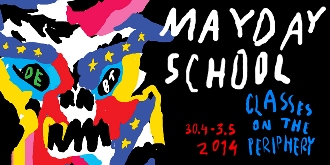Which classes exist on the European periphery today? The answer to this question cannot be purely academic. This year’s May Day School aims to identify the strongest and the weakest links of the concrete class alliances that reproduce the status quo at the expense of working people.
It was the French philosopher Louis Althusser who has perhaps most vividly immortalized what is ostensibly the single biggest theoretical gap in Marx’s oeuvre, when he wrote the following words in the famous 1965 Reading Capital: “The reader will know how Volume Three ends. A title: Classes. Forty lines, then silence.” The lack of any rigorous, explicit and systematic formulation of class theory by Marx has haunted Marxism ever since those fateful last lines of the 3rd volume of Capital have been published. This lack has had immense analytical as well as political implications, as legions of Marxists after Marx have labored relentlessly to produce their own spins on what a Marxian theory of class was, could and should be, and consequently, how a social revolution out of capitalism is to be imagined. Throughout the 20th century in general and its latter half in particular this was probably the most debated Marxist topic in academia as well as outside it, pace the so-called “transformation problem”.
An immense body of sociological work has been produced, yet it still seems that nothing has really drastically changed. On the one side, mainstream sociologists (even the more “radical” amongst them) are still enamored with various Weberian stratification theories of class and status, which denounce with great fervor and vitriol any talk of exploitation, class struggle or class relations. On the other side, the radical theoreticians have either taken quite a few steps backward with their fashionable and eclectic reformulations of Marxist-inspired class theories, as is the case with most poststructuralists, or have not supplemented their otherwise useful theories with rigorous empirical investigations, as is the case with most Marxists.
It is, therefore, the twin-purpose of this year’s May Day School to discuss all of these important issues – analytical as well as political – in great depth. More concretely, we’ll probe into what are currently the most discussed and contested theoretical issues in the field of Marxian sociology in general and Marxian class theory in particular. Most keynote lectures as well as some panel discussions will be devoted to the following issues: what is the theoretical foundation of a Marxian class theory, how does gender coalesce with class divisions, what is the class nature of knowledge, what to make of the new international division of labor, and so on. The other lectures and discussions will be more empirically oriented. There the following issues will be pursued: what are, and which social agents compose, the specific class relations and divisions in the Eastern post-socialist countries, what is the character of the workforce in specific sectors (such as the media, culture industry and public education) of Slovenian economy, how do class relations and divisions pervade Slovenian agriculture, and so on.
Participants: Guglielmo Carchedi, Jane Hardy, Joseph Choonara, Ursula Huws, Chris O’Kane, Andrea Jovanović, Dora Levačič, Domagoj Mihaljević, Goran Marković, Anej Korsika, Marko Kostanić, Ognjen Kojanić, Florin Poenaru, Kire Vasilev, Madlen Nikolova, Igor Vobič, Katja Praznik, Primož Krašovec, Goran Đulić, Marko Lovec, Sašo Furlan, Tibor Rutar, Anita Tolić, Stane Kavčič, and others.
Details and further information
Schedule including abstracts
